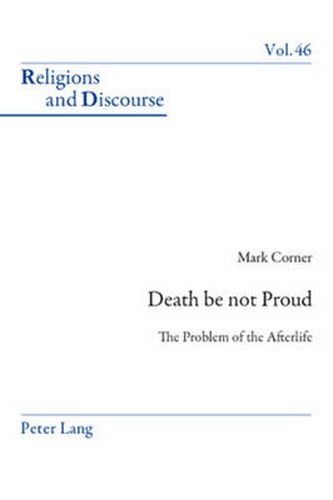Readings Newsletter
Become a Readings Member to make your shopping experience even easier.
Sign in or sign up for free!
You’re not far away from qualifying for FREE standard shipping within Australia
You’ve qualified for FREE standard shipping within Australia
The cart is loading…






Might people one day live for ever? Would they want to? What sense can be made of ideas commonly referred to in terms of an ‘afterlife’? What about notions of Heaven and Hell, of Purgatory and reincarnation? And in what sort of state are human beings expected to be during this ‘afterlife’ - immortal souls or resurrected bodies (and does either notion make sense)? What about the fact that any ‘afterlife’ concerns not just the fate of individuals but of society (‘communion of saints’) and even the physical universe itself?
This book tries to survey some of the existing arguments about life ‘after’ death, with chapters on material from Christian tradition (particularly the New Testament and the Early Church) and from the philosophy of religion. It then attempts to reach its own conclusions, drawing on Kant and Barth in order to suggest that death is to be overcome rather than survived.
$9.00 standard shipping within Australia
FREE standard shipping within Australia for orders over $100.00
Express & International shipping calculated at checkout
Might people one day live for ever? Would they want to? What sense can be made of ideas commonly referred to in terms of an ‘afterlife’? What about notions of Heaven and Hell, of Purgatory and reincarnation? And in what sort of state are human beings expected to be during this ‘afterlife’ - immortal souls or resurrected bodies (and does either notion make sense)? What about the fact that any ‘afterlife’ concerns not just the fate of individuals but of society (‘communion of saints’) and even the physical universe itself?
This book tries to survey some of the existing arguments about life ‘after’ death, with chapters on material from Christian tradition (particularly the New Testament and the Early Church) and from the philosophy of religion. It then attempts to reach its own conclusions, drawing on Kant and Barth in order to suggest that death is to be overcome rather than survived.